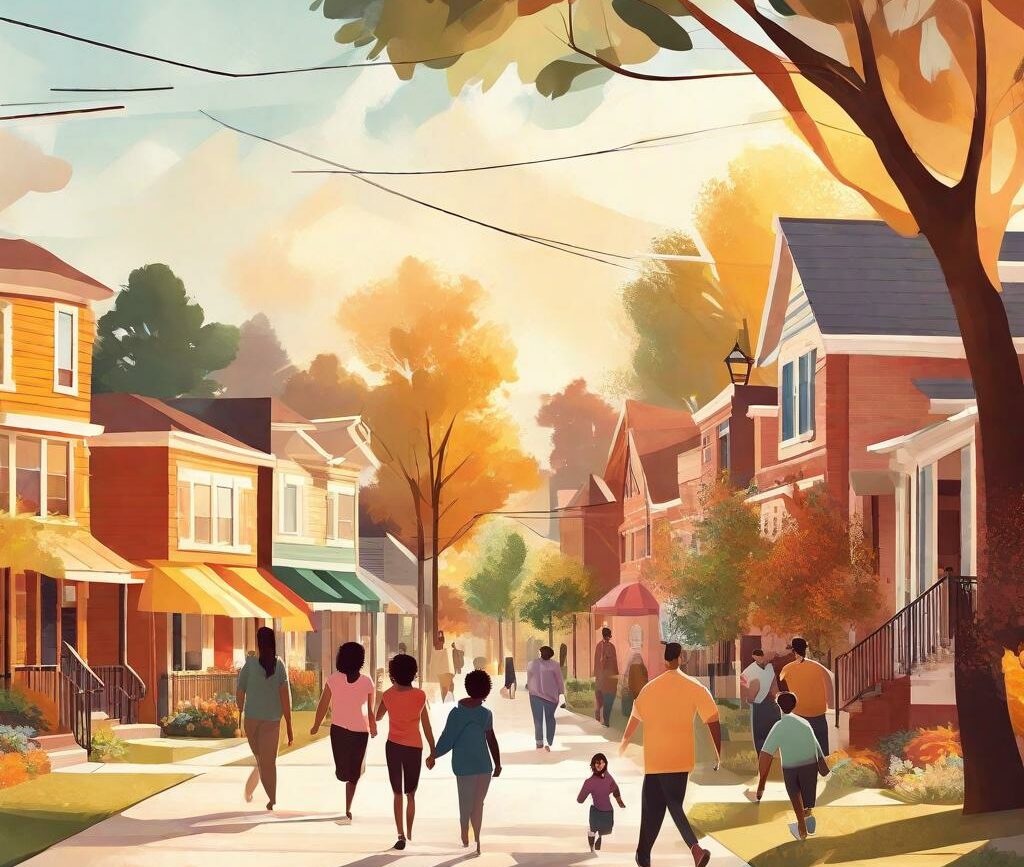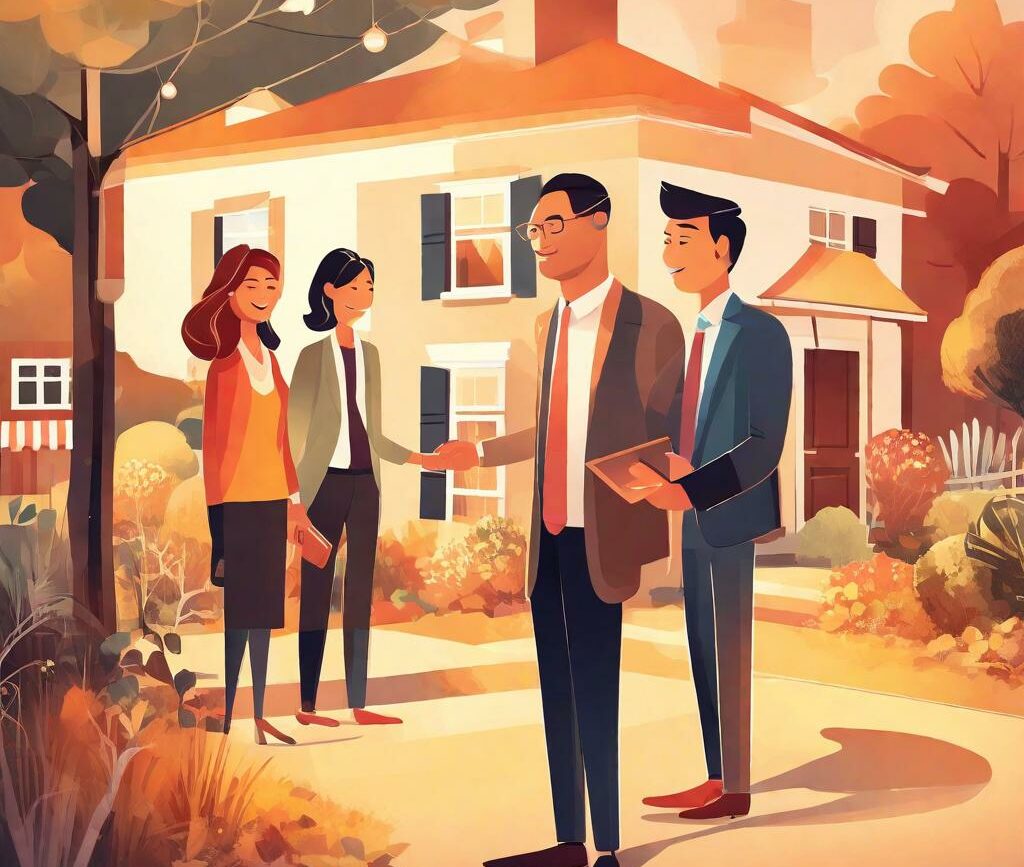
Neighborhood guides can be a powerful tool for estate agents to drive traffic, generate leads, and ultimately boost sales. By providing detailed information about each neighborhood, potential buyers and sellers can gain valuable insights and make informed decisions. In this ultimate guide, we will explore the importance of neighborhood guides for estate agents and how they can effectively utilize them to achieve their goals.
Building a Strong Foundation: Creating Effective Neighborhood Guides

To create effective neighborhood guides, estate agents need to follow a step-by-step approach that ensures thorough research, engaging content, and optimization for search engines. Let’s dive into the key steps involved in crafting neighborhood guides that captivate and inform potential clients.
A. Step 1: Identifying Your Target Audience
Understanding your target audience is crucial as it shapes the content and tone of your neighborhood guides. Start by analyzing the demographics and preferences of your potential buyers or sellers. Are they families looking for good schools in a safe neighborhood? Or are they young professionals seeking vibrant areas with a thriving nightlife? Conducting market research and gathering data on your audience will help tailor your guides to their specific needs and interests.
B. Step 2: Comprehensive Neighborhood Research
Thorough neighborhood research is the foundation of an effective guide. Identify key neighborhoods and areas that are relevant to your target audience. Gather essential information such as school ratings, amenities, crime rates, transportation options, and local attractions. Utilize reliable sources, such as government databases, local authorities, and reputable real estate websites, to ensure the accuracy of the data you provide.
C. Step 3: Crafting Engaging and Informative Content
Once you have gathered all the necessary information, it’s time to transform it into engaging and informative content. Write clear and concise descriptions of each neighborhood, highlighting its unique features and benefits. Use engaging language to create a visual image in the reader’s mind. Consider incorporating visually appealing elements such as maps and images to enhance the overall readability and attractiveness of your guides.
D. Step 4: Optimizing Neighborhood Guides for SEO
To maximize the visibility of your neighborhood guides, it’s crucial to optimize them for search engines. Research relevant keywords for each neighborhood and incorporate them naturally into your content, meta tags, headings, and URLs. Additionally, include internal and external links that provide additional value to your readers while improving your search rankings.
E. Step 5: Promoting Your Neighborhood Guides
Promotion plays a vital role in driving traffic to your neighborhood guides. Leverage social media platforms, online communities, and local business collaborations to reach a wider audience. Engage in email marketing campaigns, offering exclusive content or discounts to attract potential leads.
Driving Traffic: Strategies to Increase Visibility and Reach

Creating compelling neighborhood guides is just the first step. To drive traffic to your guides, you need to adopt specific strategies that increase visibility and reach within your target market. Let’s explore some effective techniques.
A. Utilizing Local SEO Techniques
Optimizing your Google My Business listing for each neighborhood is essential for local SEO. Encourage customers to leave reviews and ratings on your listing to boost your credibility. Implement schema markup to enhance your search results and make your guides more appealing to search engines.
B. Creating Shareable and Compelling Content
Craft blog posts and articles featuring your neighborhood guides to attract a wider audience. Develop informative videos showcasing the best aspects of each area and design visually appealing infographics for social media engagement. By creating shareable content, you can increase the visibility of your guides and drive more traffic to your website.
C. Leveraging Online Directories and Real Estate Platforms
Listing your neighborhood guides on popular real estate websites can significantly increase their visibility. Submitting guides to local online directories can also help potential clients find your content. Additionally, explore partnerships with online platforms that offer property listings to tap into their existing user.
D. Harnessing the Power of Online Advertising
Online advertising is a powerful tool for driving traffic to your guides. Run targeted ads on platforms like Google Ads and Facebook, specifically targeting users within your target market. Utilize retargeting techniques to reach interested prospects who have previously interacted with your guides. Continuously test different ad formats and optimize your campaigns for better results.
E. Engaging with Local Communities and Events
Participating in local events and sponsoring community initiatives can help establish your brand as a trusted authority in the neighborhood. Collaborating with neighborhood associations and local organizations can increase your visibility and drive traffic to your guides. Consider hosting informative workshops and webinars to share your expertise and attract potential clients.
Converting Traffic into Leads: Effective Lead Generation Strategies

Driving traffic to your neighborhood guides is essential, but ultimately, you want to convert that traffic into leads. Implementing effective lead generation strategies can help you capture valuable prospect information. Let’s explore some strategies to convert traffic into leads.
A. Implementing Strong Call-to-Actions
Placing prominent and persuasive calls-to-action (CTAs) throughout your guides is crucial for lead generation. Offer exclusive content or guides in exchange for contact information to incentivize potential clients. Create a sense of urgency and value with limited-time offers to encourage users to take action.
B. Developing Targeted Landing Pages
Creating targeted landing pages tailored to each neighborhood guide is an effective way to capture prospect information. Include lead capture forms on these pages to gather contact details. Continuously A/B test different elements on your landing pages to optimize conversion rates and improve lead generation.
C. Personalizing the User Experience
Utilize smart website technologies to customize content for visitors. Tailor your website’s experience based on their behavior and preferences to provide a personalized touch. Send personalized follow-up emails with relevant property recommendations to nurture leads and increase the chances of conversion. Implement live chat or chatbot features for instant assistance and engagement.
D. Empowering Your Sales Team
Equip your agents with comprehensive knowledge of each neighborhood to engage potential clients effectively. Provide them with tools and resources to nurture leads efficiently, such as CRM systems that enable lead tracking and management. A seamless CRM system ensures that no leads fall through the cracks, increasing your chances of conversion.
E. Leveraging Email Marketing Campaigns
Send targeted emails to prospects who have shown interest in your neighborhood guides. Offer valuable insights, updates, and exclusive deals via newsletters to keep them engaged and interested. Continuously analyze the performance of your email campaigns and refine your strategies for better results.
Closing Thoughts: Summary and FAQs

In summary, neighborhood guides can be a powerful tool for estate agents to drive traffic, generate leads, and boost sales. By following the comprehensive strategies outlined in this ultimate guide, estate agents can effectively leverage neighborhood guides and achieve success within their target market.
Frequently Asked Questions
1. How often should I update my neighborhood guides?
It is essential to keep your neighborhood guides up to date with the latest information. Neighborhoods change, amenities improve, and new developments may arise. Aim to review and update your guides at least once every six months to ensure accuracy and keep potential clients informed.
2. Can I use neighborhood guides for both buyers and sellers?
Absolutely! Neighborhood guides can be valuable resources for both buyers and sellers. Providing detailed information about the neighborhoods listings are located in can help attract potential buyers. For sellers, showcasing the neighborhood’s best features can increase the desirability of their property.
3. Are there any legal considerations when creating neighborhood guides?
When creating neighborhood guides, it’s crucial to ensure that the information provided is accurate, unbiased, and does not violate any fair housing laws or regulations. Avoid making subjective statements that may be misconstrued. Stick to objective facts and figures to maintain compliance with legal requirements.
By following these comprehensive strategies, estate agents can effectively leverage neighborhood guides to drive significant traffic, generate valuable leads, and boost sales within their target market.

